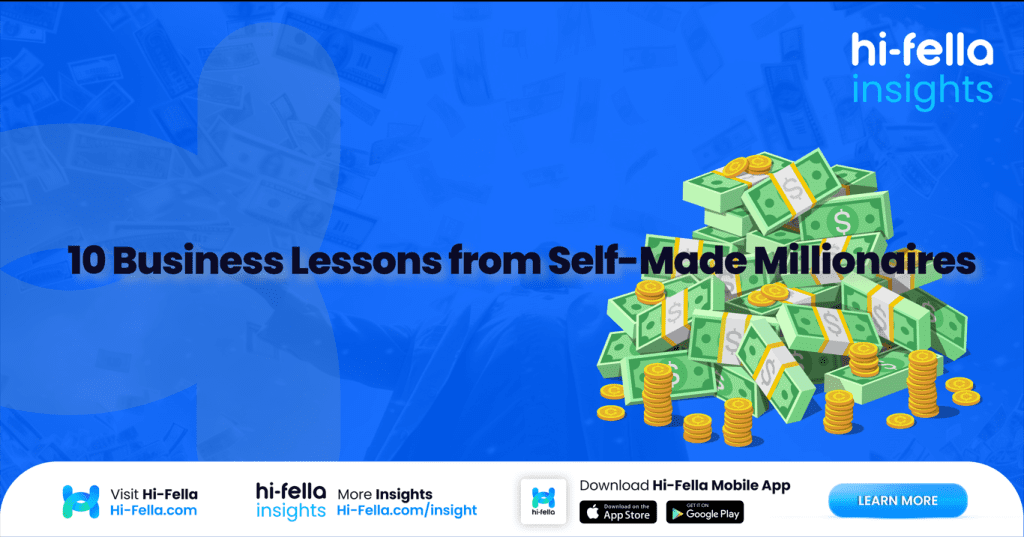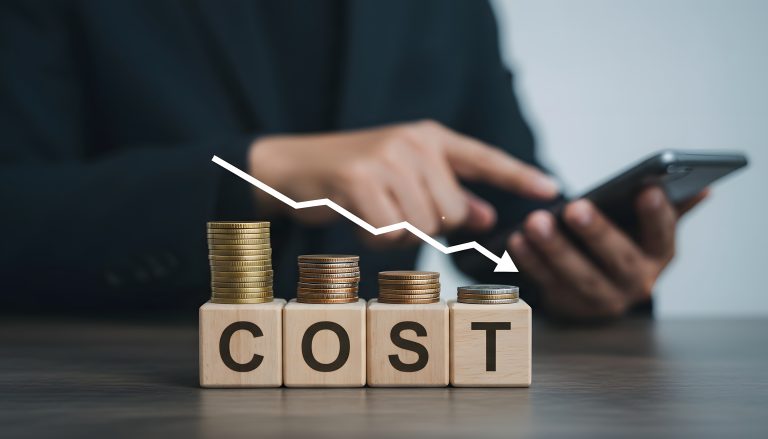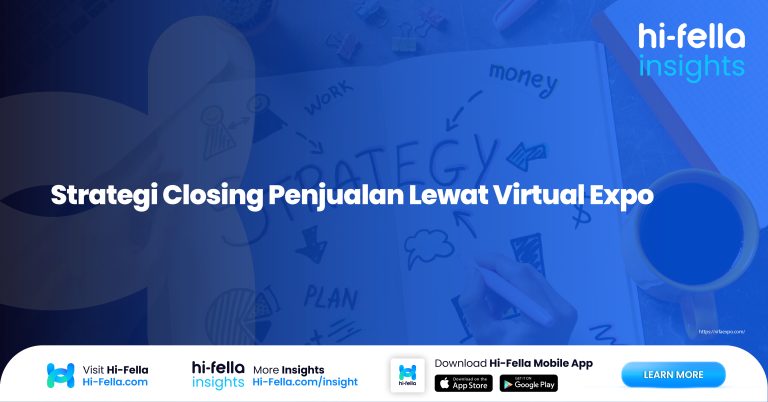Success doesn’t happen overnight, and self-made millionaires are proof that persistence, strategy, and a winning mindset can lead to extraordinary results. While luck can play a role, those who build lasting wealth often follow time-tested principles that separate them from the competition.
What can we learn from self-made millionaires? This article dives into 10 powerful business lessons that can help you build a successful, sustainable venture. Whether you’re an aspiring entrepreneur or a seasoned business owner, these lessons will guide you toward smart decision-making and exponential growth.
1. Think Long-Term, Not Short-Term
One of the most common traits among self-made millionaires is their ability to think ahead. Instead of focusing on immediate gains, they prioritize long-term growth and sustainability.
Why It Matters:
- Short-term thinking can lead to impulsive decisions that undermine business growth.
- Long-term planning allows you to build a solid foundation, attract loyal customers, and scale efficiently.
How to Apply This Lesson:
- Develop a 5 to 10-year business plan with clear objectives.
- Focus on value creation rather than quick profits.
- Reinvent and adapt—business landscapes evolve, and so should your strategies.
2. Build Multiple Streams of Income
Self-made millionaires understand the importance of diversifying their income sources. Relying on a single revenue stream is risky, especially in an unpredictable economy.
Why It Matters:
- Diversification provides financial security and business stability.
- It protects against market fluctuations and economic downturns.
- Passive income streams allow wealth accumulation without continuous effort.
How to Apply This Lesson:
- Explore digital products, investments, real estate, or partnerships to expand your income sources.
- Consider launching a subscription model for recurring revenue.
- Use platforms like Hi-Fella to find new global opportunities for your business.
3. Solve Problems, Don’t Sell Products
The best businesses focus on solving customer pain points, not just selling a product or service. Self-made millionaires understand that success comes from adding value.
Why It Matters:
- Problem-solving businesses create stronger brand loyalty.
- Customers are willing to pay more for solutions that make their lives easier.
- Companies that prioritize solving problems become industry leaders.
How to Apply This Lesson:
- Research your target market’s biggest challenges.
- Develop solutions that exceed expectations and differentiate your brand.
- Collect customer feedback and refine your offerings accordingly.
4. Master the Art of Networking
Connections open doors to opportunities, partnerships, and resources that money alone cannot buy. Self-made millionaires excel at building and leveraging professional relationships.
Why It Matters:
- Networking leads to collaborations and business growth.
- Strong relationships create trust and credibility in your industry.
- A well-connected entrepreneur can access investors, mentors, and high-value clients.
How to Apply This Lesson:
- Attend industry events and conferences to build relationships.
- Leverage platforms like Hi-Fella to connect with global buyers and suppliers.
- Offer value before asking for favors—give first, receive later.
5. Invest in Yourself and Your Team
Successful entrepreneurs never stop learning. They understand that investing in personal and professional development yields long-term rewards.
Why It Matters:
- Continuous learning keeps you ahead of industry trends.
- A well-trained team enhances productivity and efficiency.
- Personal development improves decision-making and leadership skills.
How to Apply This Lesson:
- Read books, take courses, and stay updated on industry changes.
- Provide training and mentorship for your employees.
- Attend seminars, mastermind groups, and online networking platforms like Hi-Fella.
6. Take Calculated Risks
Risk-taking is part of the entrepreneurial journey. However, self-made millionaires know the difference between reckless risks and calculated risks.
Why It Matters:
- Taking risks leads to innovation and market disruption.
- Strategic risk-taking helps seize profitable opportunities.
- Overcoming challenges builds business resilience.
How to Apply This Lesson:
- Conduct thorough market research before making big decisions.
- Weigh potential rewards and risks before acting.
- Be willing to fail, but always learn from your mistakes.
7. Focus on Branding and Reputation
Your brand is more than a logo—it’s the perception people have about your business. Self-made millionaires understand that strong branding builds trust and credibility.
Why It Matters:
- A powerful brand attracts loyal customers and premium pricing.
- Word-of-mouth marketing is fueled by a strong reputation.
- Businesses with strong branding outlast competitors.
How to Apply This Lesson:
- Maintain consistent branding across all platforms.
- Provide exceptional customer experiences to build loyalty.
- Engage in strategic partnerships to enhance brand visibility.
8. Be Relentlessly Disciplined
Discipline is what separates successful entrepreneurs from those who struggle. Millionaires are consistent, focused, and committed to their goals.
Why It Matters:
- Discipline leads to high productivity and efficiency.
- Successful entrepreneurs stick to their long-term goals even when challenges arise.
- Consistency builds momentum and credibility in business.
How to Apply This Lesson:
- Establish daily routines and non-negotiable habits.
- Set clear goals and track your progress.
- Avoid distractions and prioritize high-impact tasks.
9. Learn from Failure and Keep Going
Every successful entrepreneur has faced setbacks. The difference is how they respond. Self-made millionaires see failure as a learning experience rather than a roadblock.
Why It Matters:
- Failure teaches valuable lessons that improve business strategies.
- Overcoming adversity builds mental toughness and resilience.
- Those who persist despite failures achieve long-term success.
How to Apply This Lesson:
- Embrace challenges as part of the entrepreneurial journey.
- Identify the root causes of failure and make adjustments.
- Stay adaptable and pivot when necessary.
10. Use Smart Platforms to Scale Your Business
Leveraging technology and online platforms can significantly accelerate business growth. Many self-made millionaires embrace digital tools to streamline operations, connect with potential partners, and expand globally.
Why It Matters:
- Digital platforms increase market reach and business scalability.
- Online networking enables faster deal-making and collaborations.
- Smart entrepreneurs utilize global resources to stay competitive.
How to Apply This Lesson:
- Use automation tools for business operations.
- Expand internationally through platforms like Hi-Fella, which connects buyers and suppliers through online exhibitions.
- Stay ahead of digital trends and embrace innovation.
Apply These Lessons and Succeed
Success in business requires more than just ambition—it requires strategy, discipline, and the ability to learn from those who have already made it. By implementing these 10 business lessons from self-made millionaires, you can increase your chances of building a profitable and sustainable venture.
One of the best ways to take your business to the next level is by leveraging global opportunities. Hi-Fella provides the perfect platform to connect with buyers, suppliers, and industry leaders worldwide, giving your business the networking edge it needs to thrive.
So, if you’re serious about scaling your business and making meaningful connections, join Hi-Fella today and step into the future of online business networking!








